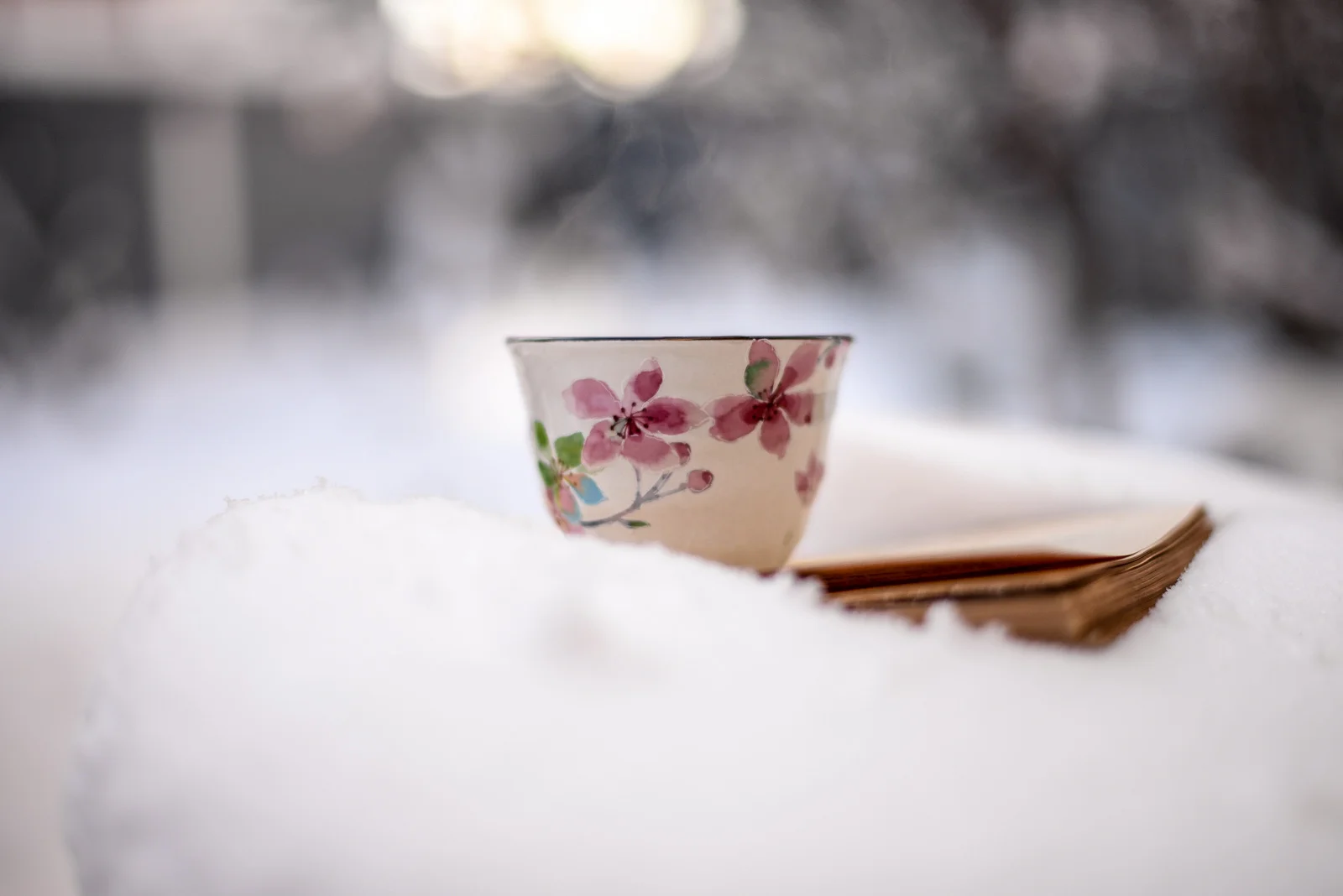Tea and Spaciousness
So you know how it is when a word seems to appear everywhere? Lately, the word for me is spaciousness. I was reading an interview with Krista Tippett and Naomi Shihab Nye on the On Being site. Maybe you’ve read it. Naomi Shihab Nye had been to Japan, and she talks about teaching there.
“I just came back from Japan a month ago, and in every classroom, I would just write on the board, “You are living in a poem.” And then I would write other things just relating to whatever we were doing in that class. But I found the students very intrigued by discussing that. “What do you mean, we’re living in a poem?” Or, “When? All the time, or just when someone talks about poetry?” And I’d say, “No, when you think, when you’re in a very quiet place, when you’re remembering, when you’re savoring an image, when you’re allowing your mind calmly to leap from one thought to another, that’s a poem. That’s what a poem does.” And they liked that.
And a girl, in fact, wrote me a note in Yokohama on the day that I was leaving her school that has come to be the most significant note any student has written me in years. She said, “Well, here in Japan, we have a concept called ‘yutori.’” And it is spaciousness. It’s a kind of living with spaciousness. For example, it’s leaving early enough to get somewhere so that you know you’re going to arrive early, so when you get there, you have time to look around. Or — and then she gave all these different definitions of what yutori was to her.”
So then, I’m reading this very interesting book by Anne Bogart about theatre and story, and even though I’m not much of a theatre person (I know, it’s a failing), I think it really helps to know how those working in other art forms are thinking. She talks about reading Woolf’s To the Lighthouse as a teenager, and how after struggling through the first half, suddenly, she falls through. She says, “I remember the sense of free fall. Spaciousness. Freedom. The book had led to a release and a sensation of timelessness. And this free-fall experience of spaciousness is what I strive to recreate in my work for audiences in the theatre.” She goes on: “Each and every moment of existence, no matter how stressful or how fleeting, contains the potential for spaciousness.” She talks about the Sanskrit chant that is normally translated as “May all beings everywhere be happy and free from suffering” but notes that the word happiness can also be translated as spaciousness. She says, “I find the kinship between happiness and spaciousness useful.”
“Each and every moment of existence, no matter how stressful or how fleeting, contains the potential for spaciousness.”
Bogart tells this really instructive story in her book, What’s the Story. A VIP and entourage is coming to view a play she directed in Japan. The production is running late, and so she nervously begins to try to entertain the guests. “Suddenly Hiroko turned and motioned sharply in my direction. “Shhh,” she said, “the moments before a play begins are the most beautiful.”
Okay, and how about this:
“There’s the space that seems to be out there, like the sky and the ocean and the wind, and there’s the space that seems to be inside. We could let the whole thing mix up. We could let the whole thing just dissolve into each other and into one big space. Practice is about allowing a lot of space. It’s about learning how to connect with that spaciousness that’s inside, and the spaciousness that’s outside. It’s about learning to relax, soften, and open — to connect with the sense that there’s actually a lot of room.”
– Pema Chödron
“It’s about learning to relax, soften, and open — to connect with the sense that there’s actually a lot of room.”
And:
“Silence is like a cradle holding our endeavors and our will; a silent spaciousness sustains us in our work and at the same time connects us to larger worlds that, in the busyness of our daily struggle to achieve, we have not yet investigated. Silence is the soul's break for freedom.”
– David Whyte
I would like to advocate for more spaces between words, between sentences. For waiting for a few seconds after someone else speaks, to hold a space for them rather than just running off with your own response. I want to advocate for silence in a room, in a conversation, at meetings, and in your home. I would like to sing the praises of early arrivals and slow leavings. For standing in silence, for looking each other in the eyes and saying little. For listening, and for breathing in and out, and for waiting. I would like to draw your attention to the spaces between stanzas, to books with blank pages, the blank canvas, and to music with profound rests. I’d like to remind you to sit with a book on your lap for a while before you open it to read. To close your eyes and breathe for a while before reading a poem. To sit down for a while in front of a painting. To arrive at the concert or play or movie early. To sit with your tea before you sip it. Give yourself a little space. You deserve it.









